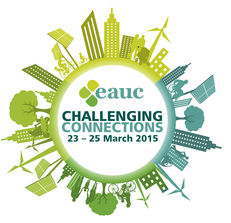This workshop presentation is from the Student Sustainability Summit 2015, in partnership with NUS and People & Planet, presented by Quinn Runkle, Senior Project Officer – Communities and Curriculum, Department for Sustainability, NUS and Maeve Cohen, National Coordinator, Post-Crash Economics.
Over the last four years the NUS and Higher Education Academy survey has consistently shown that 60% of university students want to learn about sustainability through their studies regardless of what they are studying. However, most colleges and universities are still putting their sustainability efforts into reducing their negative environmental impacts through their estates, rather than increasing their positive impacts by embedding sustainability in courses. With the increase in tuition fees, universities are seemingly producing more and more conformist, employable graduates that will go into business and politics as normal and become part of the problem. Society urgently needs graduates who can critically-think and challenge why our systems are not working for society and the environment, and who can change things for the better. In this session, we will look at how students can influence the curriculum, with the award-winningManchester Post-Crash Economics Society presenting on their campaign to get pluralism in economics at the University of Manchester.
To find more presentations and resources from the Student Sustainability Summit, search for SSS15.
To find presentations and resources from this “Challenging Connections” the 19th EAUC Annual Conference, search for EAUCConf15.
Videos








 Except where otherwise stated, content on this site is
licensed under a Creative Commons Attribution 3.0 License.
Except where otherwise stated, content on this site is
licensed under a Creative Commons Attribution 3.0 License.
